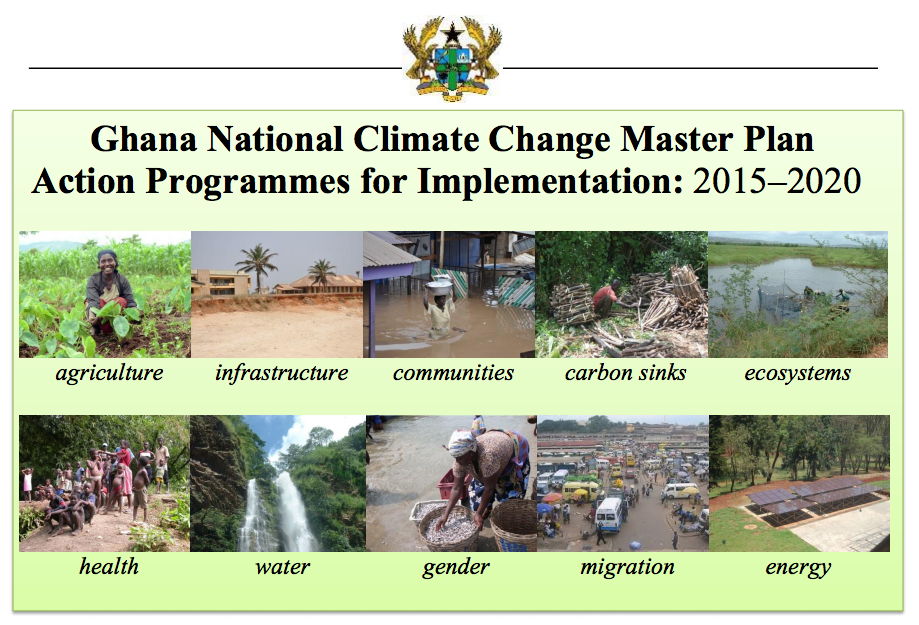Ghana National Climate Change Policy Action Programme for Implementation: 2015–2020

Introduction
Climate change is a global challenge that requires a concerted effort by all nations to address its causes and effects. Ghana’s integrated response to climate change is the National Climate Change Policy (NCCP), which provides a clearly defined pathway for dealing with the challenges of climate change. The Policy takes account of the current socioeconomic context of Ghana and incorporates the opportunities and benefits of a green economy.
The National Climate Change Policy addresses the four major areas of concern related to climate change and climate variability in Ghana:
- Increasing greenhouse gas emissions and loss of carbon sinks;
- Increasing temperatures;
- Rainfall variability leading to extreme and unpredictable events; and
- Sea-level rise.
The NCCP process further identified ten Policy Focus Areas for addressing Ghana’s climate change challenges and opportunities. Each of these areas has a number of specific programmes for addressing the critical actions necessary to achieve the desired objectives. The Policy Focus Areas are:
- Develop climate-resilient agriculture and food security systems;
- Build climate-resilient infrastructure;
- Increase resilience of vulnerable communities to climate-related risks;
- Increase carbon sinks;
- Improve management and resilience of terrestrial, aquatic and marine ecosystems;
- Address the impact of climate change on human health;
- Minimize the impact of climate change on access to water and sanitation;
- Address gender issues in climate change;
- Address climate change and migration; and
- Minimize greenhouse gas emissions.
The NCCP Action Programme for Implementation* includes the details of initiatives and programmes to achieve the objectives of each Policy Focus Area. It details the mainstreaming process; the estimated costing for each sector and monitoring and evaluation; and outlines financing mechanisms and strategies for effective implementation. It will serve as a guide to future national development planning framework to ensure that Ghana has a climate resilient economy to ensure low carbon development.
*download the full text from the right-hand column.
(0) Comments
There is no content